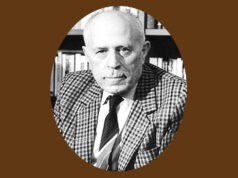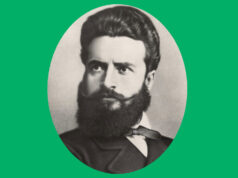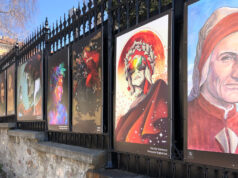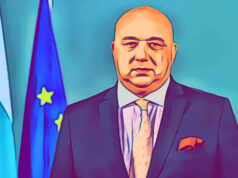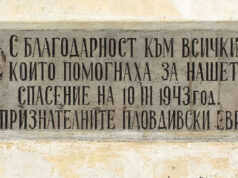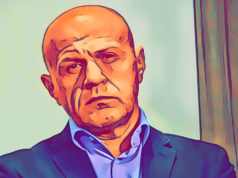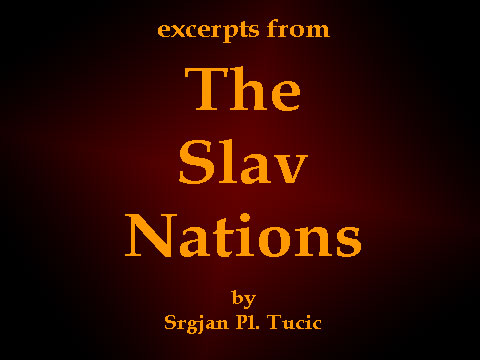 The following is an excerpt from The Slav Nations, by Srgjan Pl. Tucic, a Serbian author writing for an English audience in the early months of the First World War. The Slav Nations was a volume in the Daily Telegraph War Books series.
The following is an excerpt from The Slav Nations, by Srgjan Pl. Tucic, a Serbian author writing for an English audience in the early months of the First World War. The Slav Nations was a volume in the Daily Telegraph War Books series.
In the course of years Bulgarian relations with Russia have passed through many phases, especially during the reign of King Ferdinand. As a rule the will of Russia was decisive, but her general influence always depended on home politics and varied with the party in power. Enthusiasm for Russia and antagonism against Russian influence were alternately the order of the day. Only the people of Bulgaria remained constant in their confidence and affection for Russia; they could never forget whose hand had set them free, and even political changes could not shake them.
Certain political circles took the emancipation from Russia as their party cry and hoped to make the country great outside the Russian protectorate. They desired to translate their motto “Bulgaria for the Bulgarians” into an absolute fact. This party was founded by the notorious Stambuloff, and whenever they came into power they insisted on regarding not only Russia as the national enemy, but also the Bulgarian people who were in sympathy with Russia, and they did their utmost to tyrannize the people out of this “disease.”
In fighting for this idea they coined the party catchword – “Greater Bulgaria” n the hope of bribing the people by promises of Macedonia, Serbia, Greece, and even Constantinople as future tit-bits. This particular party new very well that Russia would never allow the Slav equilibrium in the Balkans to be upset, and, as it was not over Slavonic in its sympathies, it waged a bitter opposition against the Russian protectorate, under which all the Balkan nations stand to benefit equally.
In opposition to Stambuloff’s party there arose another, founded by Karaveloff, the greatest of Bulgarian patriots, who fought with all of the enthusiasm of which grateful hearts are capable. Karaveloff saw clearly that Bulgaria would be too weak to stand alone for a very long time to come, and that the Russian protectorate was a strong guarantee against foreign hostile influence. After Karaveloff’s death his ideas found enthusiastic partisans in Czankoff, Radoslavoff, and Daneff, in spite of minor tactical party differences.
Stambuloff’s violent death – he was assassinated in the open street – put an end to the régime of his party for many years, and brought the moderate pro-Russian parties into power. But Bulgaria was deeply injured by his policy. He bequeathed a legacy of discord at home and provoked Russia’s displeasure abroad. The new pro-Russian government did its utmost to heal the breach, and succeeded in improving relations with Russia, but Stambuloff’s partisans agitated in every possible way for the re-instatement of the radical anti-Russian party. In Dushan Petkoff and Evlogij Genadieff they had energetic leaders, who pursued their goal with all the characteristic Bulgarian tenacity and a ruthless persistence that was positively Asiatic.
After Ferdinand had established a personal régime in Bulgaria, they realized the turn of fortune’s wheel no longer depended on the temper of the nation or the strength of a party, but on the will of the ruler, and they were content to bide their time. Among the people they had no following whatsoever. But whichever party is in power by the will of the ruler is assured of a majority in the Parliament.
Elections are invariably manipulated by terroristic pressure from the authorities. There is no difference except that, whereas the pro-Russian parties are content to employ demagogic means, the Stambulovists have had recourse to bloodshed. At last the Stambulovists were successful; they came into power in 1902 –(in accordance with the wish of the highest power in the land) – and established a reign of terror equal to that of Stambuloff himself in its cruelty, but breaking all previous records as regards corruption.
The Stambulovists commanded a crushing majority in the Sobranye (Parliament) and pursued a policy of secret provocations against Russia and the nation. General Ratsho Petroff, a personal favorite of King Ferdinand and an absolute nonentity, was the Premier; but the actual dictator and leader of the Stamulovist party was Dushan Petkoff, Minister of the Interior.
Once more the policy of the government took on an anti-Russian trend, but in the meantime the nation had developed and steadfastly pursued a different policy. To be sure, under compulsion they had given the Government a majority but not their heart, and this heart now belonged to Russia more than ever.
This sentiment found expression in various violent demonstrations; it culminated in the assassination of Petkoff (likewise in the open street) and in the abuse showered upon King Ferdinand as he drove to the opening of the National Theatre at Sofia.
From that point Bulgarian policy took a totally new turn, and for a time it seemed as if the Slav renaissance had really taken root and Bulgaria had at last found herself. The Balkan Alliance before the war certainly seemed strong evidence of it.
[ad#Google Adsense Bulstack 468×60 post banner]




